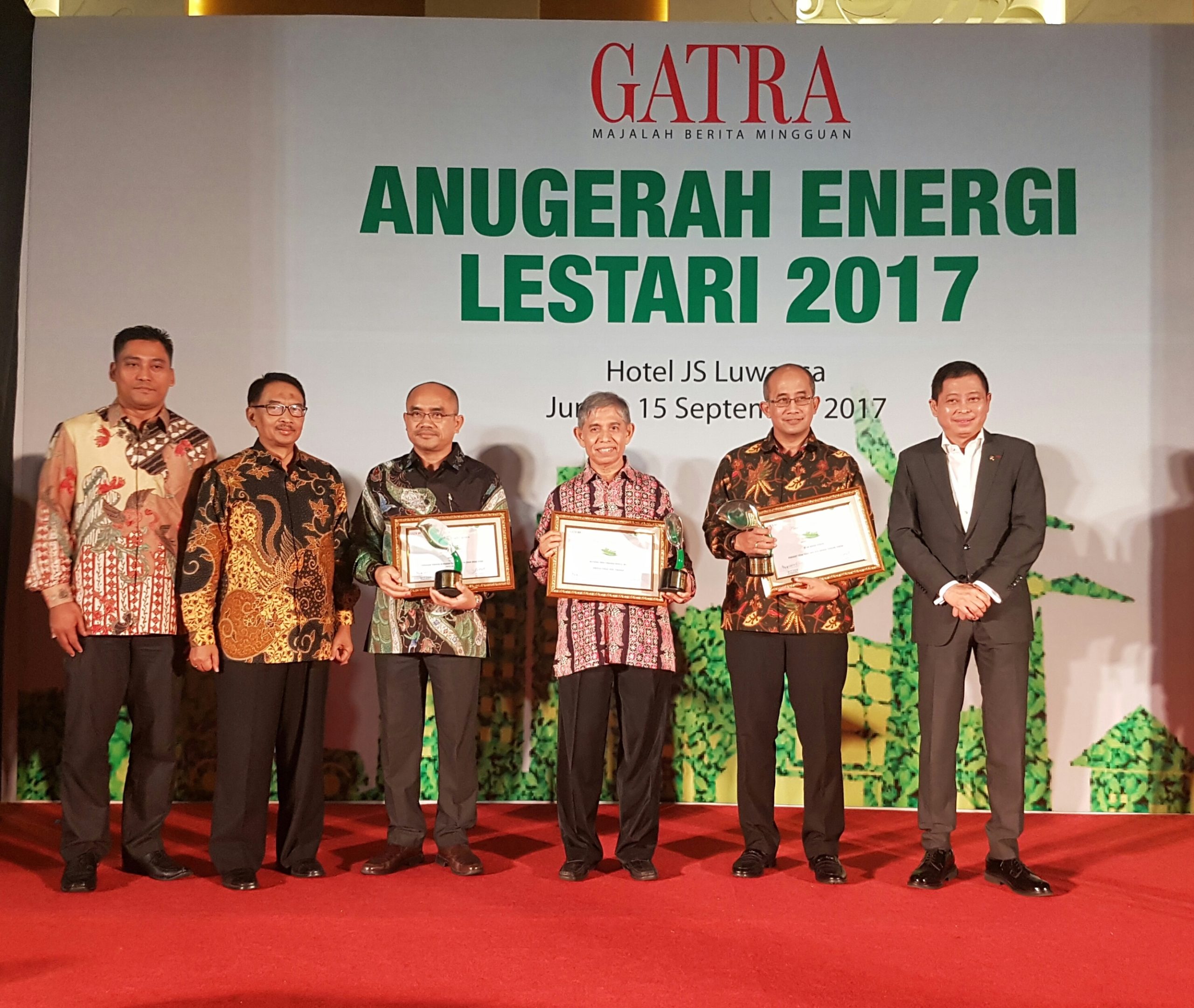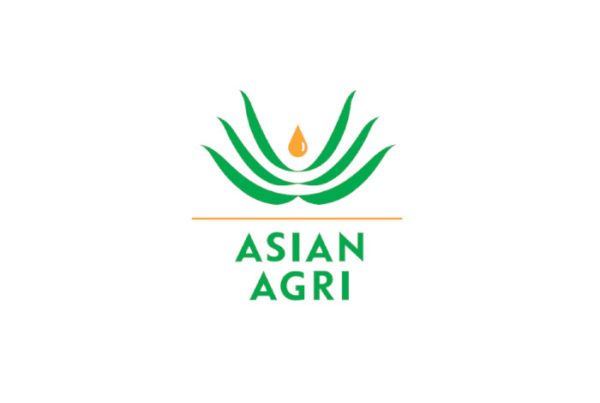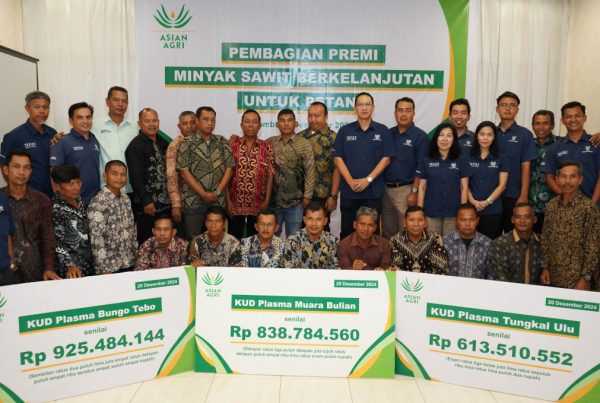Jakarta, 18 September 2017 – Asian Agri’s commitment to producing renewable energy from organic waste from its production process was recognized at the Anugerah Energi Lestari Award 2017.
The company was rewarded for its biogas plants, which convert leftover palm oil material into gas which is used to power the company’s mills as well as local communities. Seven plants are already in operation, with plans to bring the total to 20 by 2020.
The award was presented in Jakarta to James Boima Sembiring, Head of Mill and Engineering at Asian Agri, in the presence of Ignasius Jonan, Indonesia’s Minister of Energy and Mineral Resources.

“We are very happy and proud to receive this award from the Government through the Ministry of Energy and Mineral Resources, which recognizes the commitment of Asian Agri to build biogas power plants,” said James.
Waste from the palm oil production process, known as Palm Oil Mill Effluent (POME), was previously only used for land applications, either as a fertilizer, to maintain soil moisture, or to prevent soil erosion. The biogas plants use a fermentation process to convert the POME into environmentally-friendly biogas, which can be used to generate electricity.
“We are developing environmentally friendly technologies that are beneficial to the environment, the community, as well as giving added value to the company in supporting the government to provide electrical energy for remote areas,” said James.
Each biogas plant produces 2.2 MW of power, which can supply the 700KW needed by the palm oil mill as well as provide 1.5MW to local communities.
Bernard A Riedo, Head of Sustainability and Stakeholder Relations, said: “If a house requires 900 watts of electricity, then the excess electricity from every Asian Agri biogas plant of around 1,500,000 watts can be utilized by more than 1,600 homes. These seven biogas plants are able to support the electricity needs of more than 11,600 houses.
“The real concern and commitment of palm oil companies in Indonesia to environmental sustainability and the Sustainable Development Goals will contribute significantly to national efforts to reduce global warming and climate change worldwide,” Bernard said.
Asian Agri has built two biogas plants in North Sumatra, in Sidomulyo Village, Bilah Hilir District, Labuhan Batu Regency, and Batu Anam Village, Rahuning District, Asahan Regency.
There are three biogas plants in Pelalawan Regency in Riau Province, located in Air Hitam Village, Ukui District, Segati Village, Langgam District, and Bukit Agung Village, Kerinci Kanan District.
Jambi Province is home to two plants in Lubuk Bernai Village, Batang Asam District, and Taman Raja Village, Tungkal Ulu Village, both in Tanjung Jabung Barat Regency.
Asian Agri is also preparing to build another three plants this year: one in Lalang Kabung Village, Pelalawan Regency, Riau Province and the other two in North Sumatera.
***
About Asian Agri:
Asian Agri is one of the leading private companies in Indonesia producing crude palm oil (CPO) since 1979 and employs around 25,000 people today. Since 1987, Asian Agri has been a pioneer of the Indonesian government’s Trans-National Government Migration (PIR-Trans) program. Today, the company manages 100,000 Ha of land and partners 30,000 smallholder families in Riau and Jambi who operate 60,000 Ha of palm oil plantation.
Asian Agri’s success in becoming one of the leading CPO companies has been acknowledged internationally with the ISO 14001 certification for all of its operations. Its Learning Institute in Pelalawan, Riau, as well as its nursery research center in Kampar, Riau are ISO 9001 certified. In addition, Asian Agri’s R&D Center in Tebing Tinggi has also obtained certification by the International Plant-Analytical Exchange at the WEPAL lab at Wageningen University in The Netherlands, for its high standards.
More than 86% of both owned plantations in North Sumatra, Riau & Jambi provinces & scheme smallholder plantations in Riau & Jambi provinces have been RSPO certified.
All plantations have also been ISCC-certified (International Sustainability & Carbon Certification), including plantation owned by smallholders. Palm oil mills and plantation in Buatan, Ukui, Soga, Tungkul Ulu, and Muara Bulian have been ISPO (Indonesian Sustainable Palm Oil) certified.
For further information, please contact:
| Maria Sidabutar |
| Head of Corporate Communications |
| E-mail: Maria_Sidabutar@www.asianagri.com |
| DID: +6221 230 1119 |




